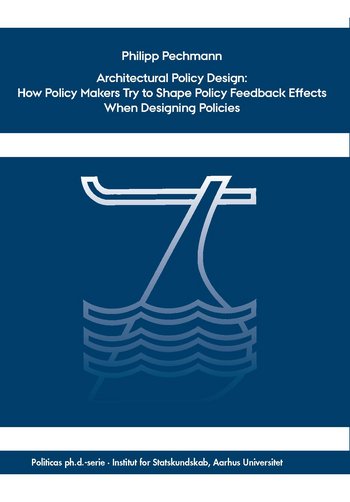Philipp Pechmann
Architectural Policy Design: How Policy Makers Try to Shape Policy Feedback Effects When Designing Policies

The dissertation investigates policy makers’ strategic use of policies to make politics. It asks whether or how policy makers strategically try to shape policy feedback effects during policy design and how such attempts influence the design of policies. Finding answers to these questions is crucial for understanding key dynamics, challenges, limitations and opportunities of public policy making, for explaining strategic choices policy makers make when they design new policies, and political struggles they engage in with their opponents. The dissertation makes two key contributions to the policy feedback and policy design literature: First, it underscores that policy makers do try to strategically design policy feedback effects when designing policies. Specifically, policy makers anticipate inward-oriented feedback effects in paradigmatic policy making and outward-oriented feedback effects in incremental policy making. Policy makers’ attempts to strategically design policy feedback effects are based on a working understanding of policy feedback dynamics and a desire to maximize both short- and long-term political gains. Second, the dissertation finds that the existing literature relies implicitly or explicitly on problematic assumptions about the nature of policy makers and policy making and that it therefore has not developed an analytical toolkit for the investigation of long-term strategic policy making. The dissertation develops a theoretical and methodological framework of architectural policy design as a solution to this problem and as a means to improve our understanding of patterns and dynamics of public policy making, policy feedback processes and policy makers’ strategic decisions during policy design.
![]() Ophavsretten tilhører Politica. Materialet må ikke bruges eller distribueres i kommercielt øjemed.
Ophavsretten tilhører Politica. Materialet må ikke bruges eller distribueres i kommercielt øjemed.